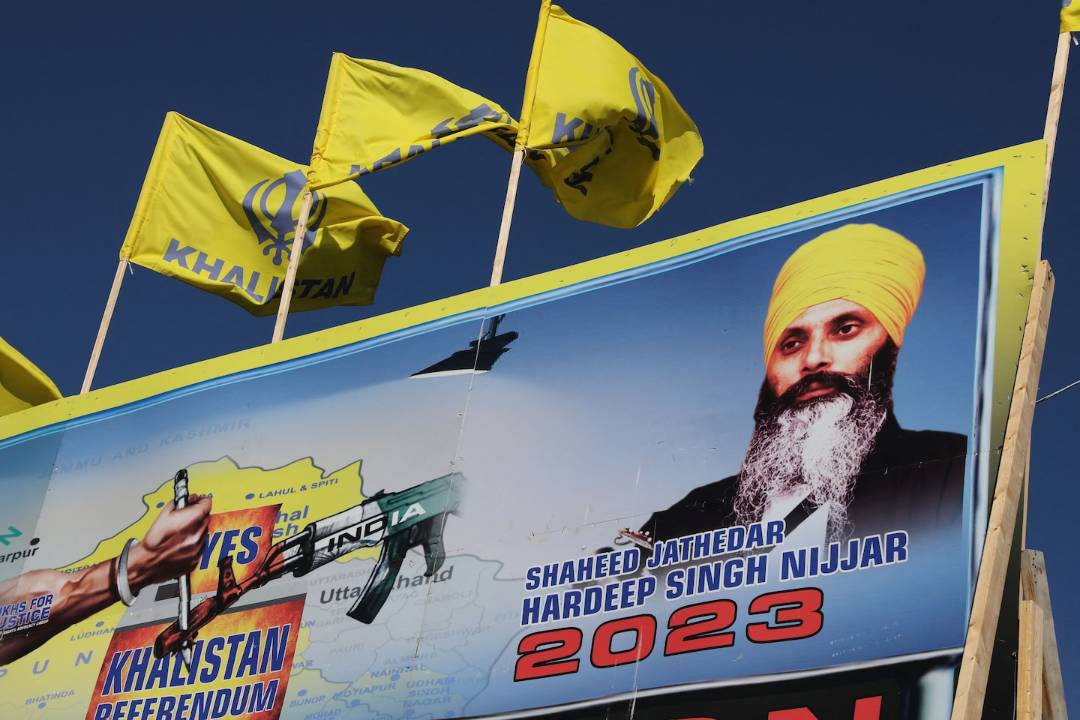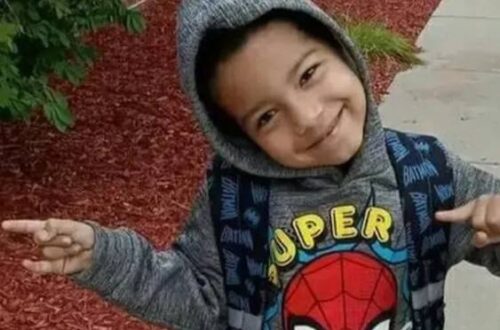Prime Minister Justin Trudeau told parliamentarians on Monday that Canada is looking into “credible allegations” linking Indian government agents to the deadly shooting of senior Sikh politician Hardeep Singh Nijjar in June.
One of the greatest Sikh diaspora communities may be found in Canada, where Sikh agitation has angered the Indian government. The Khalistan movement, one such activist group, aims to create an independent Sikh country in India named Khalistan. Nijjar actively supported the cause.
Who was Hardeep Singh Nijjar?
According to the Canadian news source Global News, Hardeep Singh Nijjar was born in the northern Indian province of Punjab and has been in Canada for more than 25 years. He was the president of the Guru Nanak Sikh Gurdwara in Surrey, British Columbia, and managed a plumbing company. He was 45.
In the northwestern state of Punjab, the push to create a separate Sikh state included Nijjar. He was classified as a “terrorist” by the Indian government, and New Delhi was said to have issued an arrest order for him, according to Indian media.
Nijjar was allegedly a “key conspirator” in the 2007 bombing of a Punjabi movie theater, according to an Interpol notification from 2016. According to Global News, Nijjar was also accused of recruiting and fundraising, which he vigorously rejected.
The Canadian media said that he left a wife and two adult boys behind.
How was Nijjar killed?
The Sikh temple that Nijjar presided over had a shooting reported to the Royal Canadian Mounted Police on June 18 in the evening. According to the authorities, Nijjar was shot numerous times inside his pickup truck and passed away immediately.
Two suspects who were reported as being large men with masks fled the scene. Last month, the police announced the presence of a third suspect, who assisted the two shooters in escaping in a silver 2008 Toyota Camry. The Toronto Sun reported on Monday that all three suspects are still at large.
Despite without disclosing a reason, police described the act as “targeted”. Some Sikhs have expressed fear that the murder may have been carried out for political reasons. According to his friends and local media, Nijjar had received a warning from Canadian intelligence agencies that he was in danger.
Nijjar’s attorney, Gurpatwant Singh Pannun, told The Washington Post that he thought Nijjar was being pursued because he planned to organize a non-binding vote in Canada on whether to establish an independent Sikh state in Punjab to be known as Khalistan. Trudeau was urged by Pannun to oust the Indian high commissioner from Canada.
What did Trudeau say about his case?
According to Trudeau, who spoke to legislators on Monday, Canadian authorities are working with its allies to investigate Nijjar’s death and are looking into “credible allegations” of connections to Indian government officials.
“Any involvement of a foreign government in the killing of a Canadian citizen on Canadian soil is an unacceptable violation of our sovereignty,” the speaker declared. It is against the fundamental principles that govern behavior in free, open, and democratic society.
After acknowledging that some members of the Indo-Canadian community “are feeling angry or perhaps frightened,” Trudeau pleaded with the Indian government to work with them “to get to the bottom of this matter.”
At the Group of 20 summit earlier this month in New Delhi, he claimed to have expressed his “deep concerns” to senior security and intelligence officials in India as well as “personally and directly” and “in no uncertain terms” to Indian Prime Minister Narendra Modi.
How has this affected Canada-Indian relations?
The expulsion of an Indian diplomat, whom she referred to as “the head” of Indian intelligence in Canada, was ordered by Mélanie Joly, Canada’s foreign minister, she told reporters on Monday. She stated that this week’s U.N. General Assembly in New York would include a discussion of the charges that Trudeau had brought up with President Biden and British Prime Minister Rishi Sunak.
The public safety minister of Canada, Dominic LeBlanc, informed reporters that Canadian security personnel visited India on many occasions recently to consult with Indian counterparts concerning the murder of Nijjar. When asked repeatedly if Indian authorities are interfering with Canada’s probe, he remained silent.
Canadian authorities announced this week that they have suspended trade negotiations and postponed a long-planned trade visit to Mumbai next month.
In retaliation, India expelled a Canadian diplomat on Tuesday. The Indian government did not mention the ousted Canadian diplomat by name, but the Hindustan Times identified him as the head of the Canadian intelligence post in New Delhi.
How has India responded?
In a statement released on Tuesday, the Indian Ministry of External Affairs denied the Canadian accusations as “absurd.”
Following the G-20 summit, Modi’s office released a statement stating that the Indian leader expressed worries on the “continuing anti-India activities of extremist elements in Canada,” adding that they are “promoting secessionism and inciting violence.”
The potential resurrection of a Sikh separatist movement in Punjab has alarmed Indian authorities in recent months. A self-described separatist named Amritpal Singh was apprehended by authorities in April following a month-long pursuit during which they partially shut down the internet and restricted social media.
What is Sikhism?
The monotheistic religion of Sikhism was founded in Punjab five centuries ago. The majority of the more than 25 million Sikhs in the globe, who are a religious minority, reside in India.
Significant Sikh communities can be found in Britain, Canada, and the US.
According to the Sikh Coalition, one of the most obvious characteristics of the Sikh identity is the turban, which can be worn by both men and women. The religion promotes equality for all people.
In Canada, around 770,000 persons identified Sikhism as their religion in the census of 2021. Four people of Sikh ancestry were in Justin Trudeau’s cabinet when he was elected prime minister in 2015. The leader of the center-left New Democratic Party, Jagmeet Singh, is Sikh.
While some adherents of the Sikh faith back the separatist movement, the cause is not widely supported in Punjab.
What is the Khalistan movement?
The Khalistan movement and the hostilities between the Indian government and Sikh separatists received additional focus after Nijjar’s passing.
The movement, which was started in the 1940s, wants to create Khalistan, a sovereign state, for the Sikh community in India. India has forbidden it because the government sees it as a danger to the country’s security.
An active branch of the Sikh diaspora that supports establishing an independent Sikh country is present in Canada.
This year, Indian security officials raised concern over indications of rising militancy in Punjab.
Human Rights Watch estimates that hundreds of people died during the Sikh rebellion of the 1980s and 1990s. In the 1985 bombing of Air India Flight 182, which was traveling from Canada to India and murdered all 329 aboard, a Sikh fanatic was found guilty.
This report was contributed to by Amanda Coletta in Toronto, Gerry Shih in New Delhi, and Karishma Mehrotra in Mumbai.





